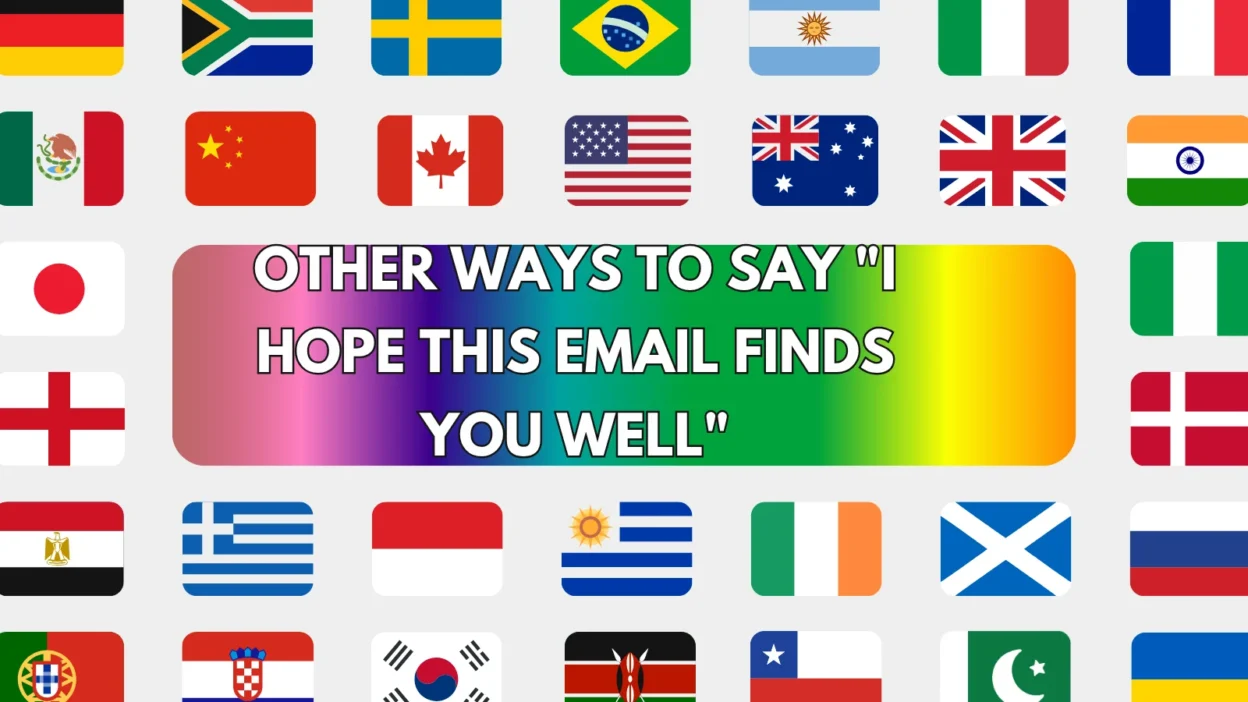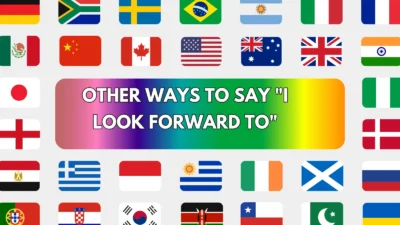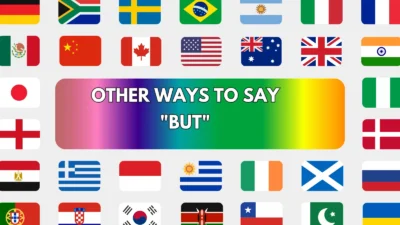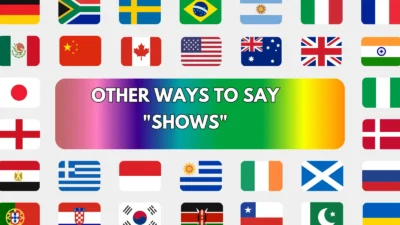The phrase “I hope this email finds you well” is one of the most common ways to start a professional email. It’s polite, friendly, and shows thoughtfulness. However, it’s also overused — and in many cases, it can sound robotic or impersonal.
If you want to make a stronger connection, stand out, or sound more authentic, it helps to switch things up. Below are 25 effective and professional alternatives you can use instead of “I hope this email finds you well,” complete with examples, meanings, and ideal situations.
1. I Hope You’re Doing Well
Meaning:
A casual and friendly way to check in on someone’s well-being.
Detailed Explanation:
This is the most straightforward and commonly used alternative — still warm, but more conversational than the original phrase.
Scenario Example:
Hi Emily, I hope you’re doing well. I’m writing to follow up on our meeting notes.
Best Use:
General professional emails, check-ins, follow-ups.
Tone:
Polite, warm, semi-formal.
2. I Trust You’re Having a Great Week
Meaning:
Expresses positivity and goodwill about someone’s current week.
Detailed Explanation:
This is a friendly and professional phrase that assumes things are going well, which gives it a confident tone.
Scenario Example:
Hi David, I trust you’re having a great week. Just wanted to touch base on our deadline.
Best Use:
Midweek emails, professional greetings.
Tone:
Positive, polite, optimistic.
3. I Hope All Is Well
Meaning:
A brief way of expressing hope that everything is going okay.
Detailed Explanation:
This is a versatile and neutral phrase — simple but effective.
Scenario Example:
I hope all is well with you. I wanted to follow up on the design brief.
Best Use:
General correspondence, professional or semi-casual.
Tone:
Neutral, respectful, warm.
4. I Trust This Message Reaches You in Good Health
Meaning:
Expresses sincere concern for the recipient’s well-being.
Detailed Explanation:
This is more formal and best suited for sensitive or official communication.
Scenario Example:
I trust this message reaches you in good health. I’m reaching out to share the final proposal.
Best Use:
Formal letters, international or health-related emails.
Tone:
Formal, respectful, sincere.
5. I Hope You Had a Wonderful Weekend
Meaning:
A cheerful way to open an email sent early in the week.
Detailed Explanation:
It personalizes your message by referencing a specific time.
Scenario Example:
Hi Mark, I hope you had a wonderful weekend. I’m writing with an update on the campaign.
Best Use:
Monday/Tuesday emails, friendly tone.
Tone:
Warm, light, professional.
6. I Hope You’re Having a Productive Day
Meaning:
A positive and work-related greeting.
Detailed Explanation:
It’s optimistic and professional, especially in fast-paced environments.
Scenario Example:
I hope you’re having a productive day. Just following up on the invoice.
Best Use:
Busy teams, fast-moving work environments.
Tone:
Encouraging, polite, goal-oriented.
7. I Hope You’re Staying Safe and Healthy
Meaning:
Shows care and consideration for someone’s well-being.
Detailed Explanation:
Often used during challenging times like pandemics or global crises.
Scenario Example:
I hope you’re staying safe and healthy. I wanted to reconnect about your inquiry.
Best Use:
Health-related messaging, compassionate communication.
Tone:
Supportive, empathetic, respectful.
8. I Trust You’re Doing Well
Meaning:
Polite and slightly more formal than “hope you’re doing well.”
Detailed Explanation:
It implies confidence in the recipient’s well-being without asking.
Scenario Example:
I trust you’re doing well. I’d like to discuss a few next steps with you.
Best Use:
Business emails, client communication.
Tone:
Confident, respectful, formal.
9. I Hope Life Is Treating You Kindly
Meaning:
A kind and unique way of checking in on someone.
Detailed Explanation:
Adds warmth and a bit of personality to your message.
Scenario Example:
I hope life is treating you kindly. Just checking if you had a chance to review the proposal.
Best Use:
Creative industries, friendly professional emails.
Tone:
Warm, personal, thoughtful.
10. I Hope You’re Having a Great Start to Your Week
Meaning:
Expresses optimism and sets a positive tone for early-week emails.
Detailed Explanation:
It’s specific to the time and feels current and upbeat.
Scenario Example:
I hope you’re having a great start to your week. Here are the files we discussed.
Best Use:
Monday or Tuesday emails, follow-ups.
Tone:
Positive, fresh, polite.
11. I Hope Things Are Going Well on Your End
Meaning:
Shows concern for the recipient’s personal or work situation.
Detailed Explanation:
It’s casual yet professional and works in a wide variety of contexts.
Scenario Example:
I hope things are going well on your end. I wanted to touch base on the next steps.
Best Use:
Collaborative projects, ongoing partnerships.
Tone:
Friendly, inclusive, semi-formal.
12. I Hope You Had a Great Holiday
Meaning:
Expresses goodwill after a known break or holiday.
Detailed Explanation:
Great for emails sent just after a vacation period.
Scenario Example:
I hope you had a great holiday. Let’s discuss next month’s roadmap.
Best Use:
Post-holiday messages, seasonal follow-ups.
Tone:
Warm, timely, friendly.
13. I Hope You’re Having a Nice Day
Meaning:
Light and positive greeting to brighten the reader’s mood.
Detailed Explanation:
Less formal but widely acceptable in professional settings.
Scenario Example:
I hope you’re having a nice day. I’m following up on our last call.
Best Use:
Customer support, client emails, team messages.
Tone:
Pleasant, warm, neutral.
14. I Trust Everything Is Going Well With You
Meaning:
Polite assumption that the recipient is doing well.
Detailed Explanation:
Adds formality and respect to the greeting.
Scenario Example:
I trust everything is going well with you. I wanted to confirm tomorrow’s meeting.
Best Use:
Professional and client communication.
Tone:
Formal, optimistic, courteous.
15. I Hope This Message Finds You in Good Spirits
Meaning:
Wishes emotional positivity to the recipient.
Detailed Explanation:
Uplifting and slightly poetic — adds a personal touch.
Scenario Example:
I hope this message finds you in good spirits. I’ve attached the requested information.
Best Use:
Warm emails, leadership messages, friendly contacts.
Tone:
Uplifting, cheerful, warm.
16. I Trust You’re Enjoying the Week So Far
Meaning:
Pleasant and positive opening for mid-week emails.
Detailed Explanation:
Shows thoughtfulness while maintaining a professional tone.
Scenario Example:
I trust you’re enjoying the week so far. I’d like to follow up on the project timeline.
Best Use:
Mid-week updates, collaborative teams.
Tone:
Positive, professional, courteous.
17. I Hope All Is Going Smoothly on Your End
Meaning:
A hopeful way to express empathy and interest in the other person’s progress.
Detailed Explanation:
Good for ongoing collaborations or projects where status is unknown.
Scenario Example:
I hope all is going smoothly on your end. I’m looking forward to your update.
Best Use:
Teamwork, client relationships, vendor updates.
Tone:
Supportive, kind, semi-formal.
18. I Hope Everything’s Going Well for You
Meaning:
A softer, more general expression of care.
Detailed Explanation:
Warm and less formulaic than the original phrase.
Scenario Example:
I hope everything’s going well for you. Just wanted to share some new details.
Best Use:
Personalized emails, partnerships.
Tone:
Friendly, warm, natural.
19. I Hope You’re Enjoying Some Peaceful Moments Lately
Meaning:
A thoughtful, human-centered way to start a message.
Detailed Explanation:
Shows emotional intelligence and builds rapport.
Scenario Example:
I hope you’re enjoying some peaceful moments lately. I’ve attached our meeting notes.
Best Use:
Creative or nonprofit communication, warm messaging.
Tone:
Gentle, human, personal.
20. I Trust You’re Off to a Great Start This Month
Meaning:
Ties the greeting to a specific time, adding relevance.
Detailed Explanation:
Shows mindfulness about timing and recipient’s schedule.
Scenario Example:
I trust you’re off to a great start this month. Let’s touch base on progress.
Best Use:
Monthly check-ins, team leadership communication.
Tone:
Professional, thoughtful, optimistic.
21. I Hope You’re Thriving
Meaning:
A confident, energizing way of checking in.
Detailed Explanation:
Short but powerful — suggests not just well-being, but success.
Scenario Example:
I hope you’re thriving. Here’s a quick update from our side.
Best Use:
Coaching, startups, leadership messages.
Tone:
Positive, inspiring, confident.
22. I Trust You’re Keeping Well
Meaning:
A more formal variation of “hope you’re doing well.”
Detailed Explanation:
Ideal for international or traditional audiences.
Scenario Example:
I trust you’re keeping well. Kindly review the attached draft.
Best Use:
Formal messages, client relations.
Tone:
Polite, respectful, professional.
23. I Hope Things Are Great On Your Side
Meaning:
Friendly and easy-going version of checking in.
Detailed Explanation:
Good for established professional relationships.
Scenario Example:
I hope things are great on your side. I’m following up on our last discussion.
Best Use:
Emails between peers or frequent collaborators.
Tone:
Casual, warm, relaxed.
24. I Hope You’re Having a Stress-Free Day
Meaning:
Wishes peace and well-being in a genuine way.
Detailed Explanation:
Sounds empathetic and is great for high-stress industries.
Scenario Example:
I hope you’re having a stress-free day. I wanted to send a quick reminder.
Best Use:
Wellness-driven industries, HR emails.
Tone:
Caring, gentle, kind.
25. I Trust You’re Having a Successful Week
Meaning:
Shows confidence in the recipient’s success and momentum.
Detailed Explanation:
Motivational and professional — great for positive workplace culture.
Scenario Example:
I trust you’re having a successful week. Let’s check in on timelines.
Best Use:
Team updates, motivational leadership.
Tone:
Positive, professional, goal-oriented.
Conclusion
Starting your email with “I hope this email finds you well” is fine — but having multiple ways to express care, respect, and professionalism adds variety and strengthens your connection with the reader. With these 25 thoughtful alternatives, you can match the tone, relationship, and situation more naturally.

Naz Fatima is an author at Saypadia who specializes in writing clear, relatable, and reader-friendly content about language, expressions, and modern terminology. She enjoys breaking down meanings with real-life context so readers can quickly understand and apply them. Naz’s work reflects a strong commitment to clarity, accuracy, and helping users find quick answers without confusion.




